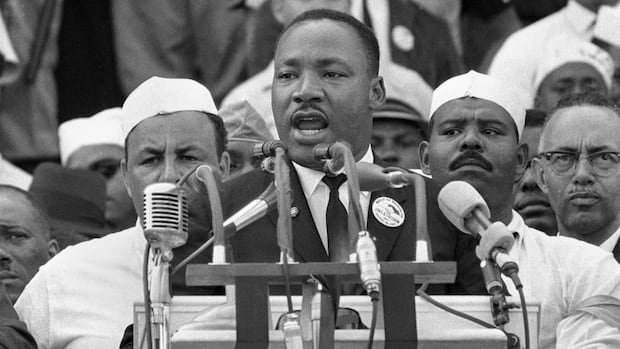Improvisation, whether in music or comedy, may appear to be a contemporary concept. However, it has been a crucial skill in our daily routines and throughout history, linking ancient storytellers to renowned figures like Beethoven and Martin Luther King Jr.
The unexpected nature of improvisation was evident in August 1963 when Dr. Martin Luther King Jr. delivered his iconic “I Have a Dream” speech. Surprisingly, the term ‘dream’ was not initially part of King’s prepared speech.
According to Stephen Nachmanovitch, the author of “Free Play” and “The Art of Is,” the pivotal moment occurred when Mahalia Jackson, a Gospel singer and close friend of King, urged him to talk about the dream during the speech. King then improvised the famous segment, altering the course of his oration.
Nachmanovitch highlights that improvisation draws from our personal encounters with various forms of art, literature, and experiences. King’s speech echoed influences from historical figures like Lincoln and the Declaration of Independence, reflecting a synthesis of his readings and life encounters.
The art of improvisation dates back to ancient times, as seen in the practices of poets like Homer, who memorized lengthy epic poems for oral recitations. Similarly, musical geniuses like Beethoven and Mozart were known for their improvisational prowess, blurring the lines between spontaneous creation and structured composition.
Contemporary comedy theaters like The Second City embrace improvisation as a core element in crafting their comedic sketches. By refining improvised ideas into scripted performances, they showcase the dynamic interplay between spontaneity and structure in artistic expression.
Keith Johnstone, a notable figure in the field of improvisation, emphasized principles such as listening, acceptance, and collaboration in his teachings. His unconventional advice to aspiring artists was to embrace the obvious and trust their initial instincts rather than overthinking decisions.
Beyond entertainment, improvisation has found relevance in leadership training and social change initiatives. Scholars like Ajay Heble advocate for the transformative power of improvisation in fostering collaboration and driving societal progress.
In instances like Paul Robeson’s improvised lyrics modification during a concert in 1952, improvisation has served as a platform for challenging norms and advocating for change. By engaging in attentive observation and embracing interconnectedness, individuals can harness the principles of improvisation to navigate complex global issues like climate change.
Ultimately, the art of improvisation transcends stage performances, offering a blueprint for active engagement and creative problem-solving in both artistic endeavors and broader societal contexts.

